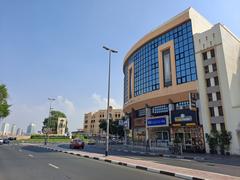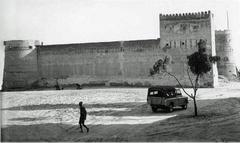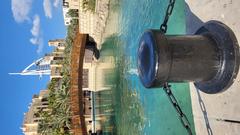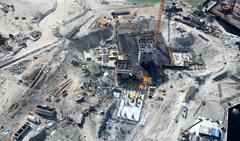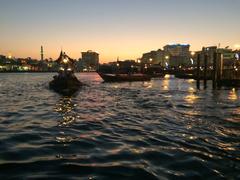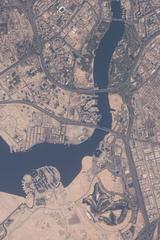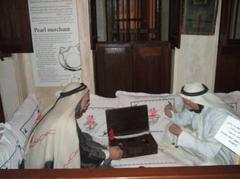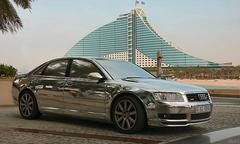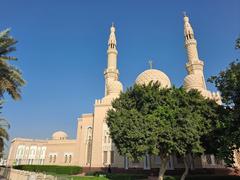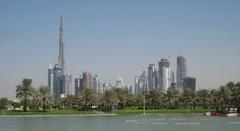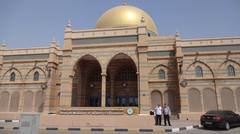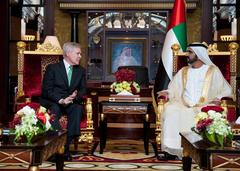Visiting Saeed Al Maktoum House Dubai: Complete Guide to Tickets, Hours, History & Tips
Date: 15/06/2025
Introduction
Sheikh Saeed Al Maktoum House, situated in Dubai’s historic Al Shindagha district, is one of the emirate’s most treasured landmarks. Built in 1896, this former residence of the Al Maktoum ruling family now serves as a museum, offering a compelling glimpse into Dubai’s transformation from a modest fishing settlement to a global metropolis. The house stands as an exceptional example of traditional Emirati architecture, featuring coral stone walls, gypsum, teakwood, and distinctive wind towers (barjeel). As the administrative heart of Dubai in the early 20th century, Sheikh Saeed Al Maktoum House played a pivotal role in shaping the city’s political and social landscape. Today, it offers immersive exhibitions, panoramic views of Dubai Creek, and a vivid connection to the emirate’s cultural roots. (Dubai Culture, Visit Dubai, iluvdubai.ae)
This guide provides detailed information on visiting hours, ticketing, accessibility, tours, and practical tips to ensure an enriching experience at one of Dubai’s most significant historical sites.
Historical Overview
Origins and Architectural Significance
Built in 1896 along Dubai Creek, Sheikh Saeed Al Maktoum House was designed to monitor the bustling maritime trade and served as the residence of the Al Maktoum family. Its architecture exemplifies late 19th-century Arabian design, utilizing coral, gypsum, and teakwood. The house features approximately 30 rooms, three courtyards, and four wind towers (barjeel), ingeniously engineered for natural ventilation. These wind towers are an early form of air conditioning, channeling cool breezes through the living areas and ensuring comfort in Dubai’s harsh climate (trawell.in, artsandculture.google.com).
Role in Political and Social Development
From 1912 to 1958, the house was home to Sheikh Saeed bin Maktoum Al Maktoum, grandfather of Dubai’s current ruler. It was both a family residence and the seat of government, where crucial political decisions and strategies were formed—especially during the economic transition from the decline of pearling to the rise of international trade. (uaewave.com, exploringemirates.com)
Transformation into a Museum
The house was vacated in 1958 and underwent a meticulous restoration in 1986, preserving its original features while adding modern museum facilities. Today, it is managed by the Dubai Culture & Arts Authority and forms part of the Al Shindagha Museum complex. The museum’s nine thematic wings explore the Al Maktoum family history, Dubai’s maritime and social life, and the emirate’s transformation. Exhibits include rare photographs, personal artifacts, historical documents, coins, stamps, and interactive displays. (whichmuseum.com, Dubai Travel Guide)
Visitor Information
Location & Getting There
- Location: Al Shindagha, Bur Dubai, adjacent to Dubai Creek
- Metro: Al Ghubaiba Metro Station (Green Line), short walk
- Bus: Multiple RTA routes serve Al Shindagha
- Taxi: Available citywide
- Abra (Water Taxi): Cross Dubai Creek for a scenic arrival
- Parking: Available nearby; early arrival recommended during peak seasons (TravelTriangle)
Visiting Hours
- Saturday to Thursday: 8:00 AM – 8:30 PM
- Friday: 3:00 PM – 8:30 PM
- Last entry: 8:00 PM
Ticket Prices (as of June 2025)
- Adults: AED 3 (approx. INR 60)
- Children: AED 1 (approx. INR 20)
- People of Determination & Children under 5: Free
- Guided Tours: Available in Arabic and English; booking recommended during peak season
Facilities & Accessibility
- Restrooms: Located near entrance and within the complex
- Gift Shop: Souvenirs, books, memorabilia
- Café: Light refreshments and shaded seating
- Wheelchair Accessibility: Main exhibition areas accessible; some upper floors may be limited—contact ahead for special needs (uaestories.com)
- Visitor Amenities: Air-conditioned galleries, shaded courtyards, multilingual signage, and audio guides
What to Expect: Museum Highlights
Permanent Exhibitions
- Al Maktoum Family Gallery: Personal artifacts, photographs, and period furnishings
- Old Dubai: Rare images and objects from pre-oil Dubai
- Maritime Heritage: Pearl diving tools, boat models, and oral histories (Gulf News)
- Social Life: Photographs and items depicting daily life in the 1950s
- Coins, Stamps, and Documents: Rare currency and legal papers
Interactive and Educational Programs
- Guided Tours: Offered daily; advance booking advised
- Workshops: Calligraphy, palm weaving, traditional crafts
- Family Activities: Storytelling and heritage games
Temporary Exhibitions & Events
- “Dubai Through the Ages” multimedia showcases
- “Women of the Al Maktoum Family” exhibition
- Regular cultural events, workshops, and heritage celebrations (Dubai Calendar)
Practical Tips for Visitors
- Dress Code: Modest attire (shoulders and knees covered) recommended
- Best Times: Early morning or late afternoon to avoid midday heat
- Photography: Non-flash photography allowed in most areas; follow signage for restrictions
- Duration: Plan for 1.5–2 hours to explore all galleries and the surrounding heritage area
- Nearby Attractions: Combine your visit with Al Shindagha Museum, Al Fahidi Historical Neighborhood, and Dubai Creek for a full heritage experience (Al Shindagha Museum)
Frequently Asked Questions (FAQ)
Q: What are the visiting hours?
A: Saturday to Thursday 8:00 AM – 8:30 PM, Friday 3:00 PM – 8:30 PM.
Q: How much are tickets?
A: AED 3 for adults, AED 1 for children, free for people of determination and children under 5.
Q: Are guided tours available?
A: Yes, in Arabic and English; booking recommended.
Q: Is the museum accessible for wheelchair users?
A: Main exhibition areas are accessible; contact ahead for specific needs.
Q: Can I take photographs inside?
A: Non-flash photography is generally allowed except where noted.
Q: Is there a dress code?
A: Modest attire is recommended.
COVID-19 and Health Guidelines
Check the official Dubai Culture website for the latest health and safety protocols, including mask requirements and social distancing.
Visuals and Media
- Virtual tours and high-resolution images are available on the official website.
- Onsite displays feature interactive screens and QR codes for deeper exploration.
- Images with descriptive alt tags such as “Sheikh Saeed Al Maktoum House wind towers” and “Historical artifacts at Saeed Al Maktoum House” enhance digital accessibility.
Summary and Visitor Recommendations
Sheikh Saeed Al Maktoum House is an essential destination for anyone seeking to understand Dubai’s rich cultural tapestry and historical evolution. Its preserved architecture, insightful exhibitions, and accessible facilities make it suitable for all ages and interests. Enhance your visit by arriving early or late in the day, exploring nearby heritage neighborhoods, and participating in guided tours or workshops.
Call to Action
For the latest updates on visiting hours, tickets, and cultural events at Sheikh Saeed Al Maktoum House, download the Audiala app and follow us on social media. Explore related articles on our website for more about Dubai’s historical sites and plan your heritage journey today.
Contact Information
- Phone: +971 4 393 7139
- Official Website: Dubai Culture – Sheikh Saeed Al Maktoum House
For the latest details, always refer to the official Dubai Culture website or trusted tourism platforms.
Sources
- iluvdubai.ae
- Wikipedia
- Dubai Culture
- Odyfolio Emirates
- Visit Dubai
- TravelTriangle
- artsandculture.google.com
- trawell.in
- exploringemirates.com
- uaestories.com
- uaewave.com
- whichmuseum.com
